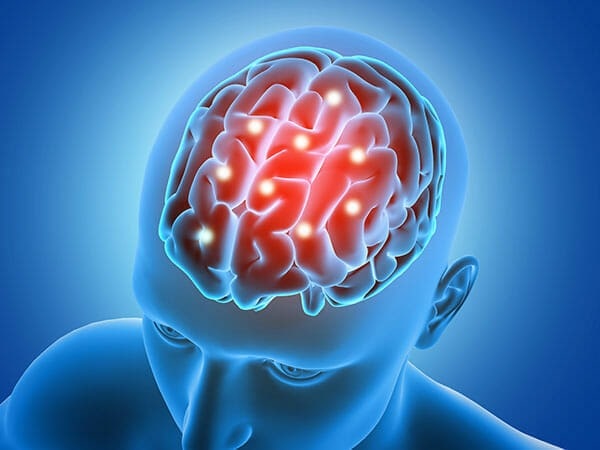Drug/Substance Addictions
Drug/substance addictions constitute the addiction types. The common ones are alcohol addiction, heroin addiction, cocaine addiction, benzo and other prescription drug addictions, cannabis addiction and other substance addictions. There are also behavioural addictions called process addiction which includes gambling addiction and eating disorders. Please follow these links for details on each addiction type. However, let’s first understand what addiction really means.
What is Drug or Substance addiction?
 If you are reading this page, it is likely because you or someone you know has an addiction problem. If you have an addiction problem, you are not alone. Studies have suggested that 1 in 3 of us are addicted to something. Also, most people would demonstrate symptoms or behaviours that are related to an addiction at some point in their lives.
In the age of modern science, we are learning more and more about addiction. There are many definitions and theories about what causes it and how it can be treated. If your alcohol or drug use, compulsive behaviours or inability to cope with difficult thoughts and feelings, is causing problems in your life, then it is likely that you suffer from an addiction. You will, therefore, need some form of treatment.
If you are reading this page, it is likely because you or someone you know has an addiction problem. If you have an addiction problem, you are not alone. Studies have suggested that 1 in 3 of us are addicted to something. Also, most people would demonstrate symptoms or behaviours that are related to an addiction at some point in their lives.
In the age of modern science, we are learning more and more about addiction. There are many definitions and theories about what causes it and how it can be treated. If your alcohol or drug use, compulsive behaviours or inability to cope with difficult thoughts and feelings, is causing problems in your life, then it is likely that you suffer from an addiction. You will, therefore, need some form of treatment. Do I or someone I know have an addiction?
 Addiction is a complex brain disease that is manifested by compulsive use despite being aware of associated harmful consequences. People with addictions have an intense focus on using certain substances or engaging in behaviours often to the point where it takes over their lives. Addiction is not limited to alcohol, drug or substance abuse. Gambling, Work, Shopping, Sex, Pornography, Internet and Gaming are examples of behavioural addictions.
Addiction is a complex brain disease that is manifested by compulsive use despite being aware of associated harmful consequences. People with addictions have an intense focus on using certain substances or engaging in behaviours often to the point where it takes over their lives. Addiction is not limited to alcohol, drug or substance abuse. Gambling, Work, Shopping, Sex, Pornography, Internet and Gaming are examples of behavioural addictions.
Addiction involves the following 4 key points:
Compulsive engagement with the substance or behaviour, a preoccupation with it.
Inability to exercise control over the substance or behaviour.
Repeated relapses despite evidence of harm to self and others.
Irritability, dissatisfaction or intensive craving when the drug or behaviour is not immediately available to them.
Stages of Drug or Substance Addiction
So far, we have talked about the behaviours and symptoms of an addicted person. The hardest thing to overcome in addiction is the psychological dependency to the substance or the behaviour. That is, overcoming the emotional pull of using a substance or engaging in an addictive behaviour to make you feel better.
Everyone experiences emotions. We all experience the feelings of sadness, stress, boredom, tiredness, anger and confusion to name but many. All people at some point in their lives will “do something” to help themselves “feel” better, thereby creating a “pleasure pull effect” as explained in the video below. We’ve all experienced comfort eating where we can’t resist the temptation of a big bar of chocolate to make ourselves feel better when we are feeling low. Many people enjoy a glass of wine after a stressful day at work to unwind. These are examples of people responding to a cue or reacting to a behaviour.
The difference between these people and people suffering from an addiction, is that these people can do this ‘just once’ and have some control over when and how much they do it. However, people with addiction problems lacks this control over the “pleasure pull effect” and find themselves doing this to a point where it gets out of hand. Hence they find themselves in a constant situation of abuse as a result of pleasing their pleasure cravings. This is often aggravated because they are in a continuous state of feeling of anxiety or depression, anger or low self-worth, built up over years.
Tolerance
Many people start using alcohol and drugs out of curiosity. For alcohol, most people can remember as a teen watching their parents or other adults have an alcoholic drink or being drunk, and wonder when their turn would come. Many people in their teens start to smoke cannabis because they are curious what the effects might be like.
At the start, drugs for many people would seem rewarding and pleasurable. However with repeated and increasing use over time, ‘users’ become ‘abusers’ as they develop a tolerance for the substance or behaviour. This means that they now require more and more of it to get the same feeling or effects. So, for drug users, they will need more of the drug to get the same high. For alcoholics, more alcohol to get drunk. For gamblers, it will be more money or a different form of gambling to get the same buzz. The CNN video clip below further explains the development of tolerance in addicts which further leads to physical dependence.
Although tolerance is a common effect of many addictions, a person does not need to have developed a tolerance to be addicted!.
Physical Dependence
As abusers take more and more of a drug or alcohol, it gets to a stage where the person becomes physically dependent. The person now experiences physical withdrawal symptoms on trying to stop taking the alcohol or drug for few hours. Such withdrawal symptoms are only stopped by taking more of the substance or drug thereby resulting in a vicious cycle. At this stage, they will need a medical detox as it is dangerous to stop abruptly.
Besides physical dependency, there are also mental or psychological factors that are present in addiction!.
Hence people in denial of an addiction problem will say that they don’t have a problem because they don’t have severe withdrawal symptoms. However, these psychological factors are very important in determining whether someone has a problem with addiction or not.
What else do we know about Drug and Substance Addictions?
 As explained in the texts and videos above, addiction affects the brain by creating neural (brain nerves) networks that produce chemicals that encourage us to repeat the compulsive harmful behaviours associated with addiction. All forms of addictions create similar effects in the same areas of the brain. Addictions are also interactive. That means one type of addiction can trigger or replace another addictive behaviour.
As explained in the texts and videos above, addiction affects the brain by creating neural (brain nerves) networks that produce chemicals that encourage us to repeat the compulsive harmful behaviours associated with addiction. All forms of addictions create similar effects in the same areas of the brain. Addictions are also interactive. That means one type of addiction can trigger or replace another addictive behaviour.
As explained in the texts and videos above, addiction affects the brain by creating neural (brain nerves) networks that produce chemicals that encourage us to repeat the compulsive harmful behaviours associated with addiction. All forms of addictions create similar effects in the same areas of the brain. Addictions are also interactive. That means one type of addiction can trigger or replace another addictive behaviour.
Addictions are also commonly caused by some level of trauma. A traumatic experience e.g physical, emotional or sexual, either in preceding years or in childhood, causes changes in the brain chemicals. These changes increase the risk of that person developing an addiction.
Addicts, particularly female addicts, also have the tendency to pass the risk to their unborn baby. This relates to the brain chemistry. Some chemical systems in the brain called Endorphin (pain management) systems and Dopamine (pleasure inducing) systems are deformed in addicts compared to normal people. For example, a stressed mother can pass on stress chemicals to her unborn baby. Therefore if the child does not receive good physical and emotional nurturing during their early stages of development, they are likely to develop poor functioning endorphin systems. This means that they are more likely to be stressed and develop an addiction later in life. This includes a desire to take drugs to ‘fill the gaps’ that was created without their awareness.
Good news – Drug or Substance Addiction can be treated!
 Addicts are likely to be riddled with feelings of guilt, shame, hurt, anger and frustration. Please know is that it is not entirely your fault because no one ordinarily chooses to become an addict. There are so many underlying factors that lead people to addiction or continue addictive behaviours. Addiction has many factors associated with it. These include emotional, medical, chemical, biological, neurological, environmental, social and spiritual factors.
Addicts are likely to be riddled with feelings of guilt, shame, hurt, anger and frustration. Please know is that it is not entirely your fault because no one ordinarily chooses to become an addict. There are so many underlying factors that lead people to addiction or continue addictive behaviours. Addiction has many factors associated with it. These include emotional, medical, chemical, biological, neurological, environmental, social and spiritual factors.
However, the most important thing to know is that addiction can be treated. Millions of people around the world have overcome their addictions and now live healthy, productive lives. They have become rehabilitated, regained the trust of their loved ones, and built healthy new relationships. We can help you do the same!.
Call us at Rehab Healthcare now to speak to someone who either understands this illness or has overcome this illness themselves. The first step in recovery is to admit that you are suffering from an addiction and accept that you need help and seek the right help. We are here to talk to you. This may be all you need right now. We can then guide and advise you as to what support and treatment options are available to you.
Call REHAB HC Now!
